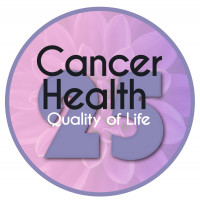The Cancer Health 25 is an annual list that honors individuals who have made a difference in the lives of people with cancer. This year’s theme is quality of life. To see the full list, click here.

Growing up in Queens, New York, and later northern New Jersey, Bonnie Ky, MD, 48, learned key life lessons from her parents, who had emigrated from Taiwan. “In essence, these were simple mantras: unconditional love of family, a tireless work ethic, and empathy and caring for those around you,” she told The ASCO Post. She harnesses those values in her pursuit of optimal cardiovascular health for everyone affected by cancer.
She exceled in math and science in high school, pursued an BS in chemical engineering at the Massachusetts Institute of Technology (MIT) and for a couple of years worked in vaccine research and development at the pharmaceutical company Merck but was ultimately drawn to medicine as a way to help people one-on-one. She completed her medical school, residency and fellowship at the University of Pennsylvania Medical School, eventually becoming a cardiologist.
Over more than 20 years at UPenn, Ky has become a leading force in the development of cardio-oncology, a new field that focuses on the detection, monitoring and treatment of cardiovascular disease prior to, during after cancer treatment.
Cardiovascular disease is a leading cause of illness and death in cancer survivors. Certain cancer treatments, including specific forms of chemotherapy and radiation, as well as newer approaches such as targeted therapies and immunotherapy, can cause cardiovascular damage as a side effect.
Ky is the inaugural editor of the journal JACC: CardioOncology, founded in 2019, a tenured associate professor of cardio-oncology and physician-scientist at the University of Pennsylvania, the founding director of the Penn Cardio-Oncology Translational Center of Excellence and the scientific director of the Thalheimer Center for Cardio-Oncology. She is the author of over 180 papers on topics such as the effects of treatment therapies for breast, kidney, prostate and lung cancers as well as lymphomas on cardiovascular risk. She also researches racial disparities in high-risk cardio-oncology communities. Her work is funded by the National Institutes of Health and the American Heart Association, and is an inducted member of the American Society for Clinical Investigation, and of the Association of American Physicians.
“Cardiotoxicity is detectable, treatable and preventable,” she told The ASCO Post. Her goals are to better understand how genetic and environmental factors interact for patients with cancer, “so we can mitigate cardiovascular risk and improve their lives.”







Comments
Comments